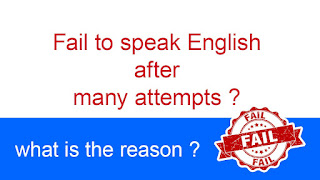Emotion refers to a sudden change in the state of mind. Such as: - Fear, anger, joy, sorrow, sadness, joy etc.
Note: Download the PDF of Professor's Key To Govt Bank Job Full PDF Book directly. See the download link at the end of this page.
Alas! He is dead.
We read in Parts of speech, Interjection is an emotional word. So, at the beginning of the exclamatory sentence, there will be an emotion indicative word i.e. an interjection.
From the sentence above 'Alas!' If the word (Interjection) is omitted, it becomes Dead -Assertive sentence.
‘What’ and ‘How’ are both WH-words used in exclamatory sentences. Such as:
- What a nice bird it is!
- How nice the bird is!
What is Adjective here and How is Adverb here. Assertive of the two sentences, verb, adverb instead of them. Such as:
- It is a very nice bird.
- And The bird is very nice.
If auxiliary verb is placed before the subject, it must be interrogative. E.g. How long it is! How long is it! (I.e., very long) Exclamatory Sentence.
How long is it? How long is it? Interrogative Sentence.
Subject ‘it’ is preceded by the auxiliary verb ‘is’. So, that's an interrogative sentence.
The WH – word (WHAT and How) sits at the beginning of both interrogative and exclamatory types of sentences. The only difference is that there is no xauxliliary verb before the subject in the Exclamatory Sentence. However, in the interrogative sentence, the auxiliary verb must precede the subject. In the exclamatory sentence ‘What’ and ‘How’ actually bring the effect of Interjection.
Structure Of Exclamatory sentence -
Structure:what a/an or how + adjective + sub. + verb + ext.
What a fine bird it is !
How beautiful you are !
For Alas/Hurrah :
Structure: Alas / Hurrah + ! + sub. + verb + extension.
Alas ! I am undone!
For If/had :
Structure: If / had + subject + verb + extension + !
If I were a king !
Exclamatory Sentence:
Exclamatory is a sentence which expresses strong/sudden feeling or emotion like surprise, pain, delight, anger, disgust etc.
Structure:
Alas / Hurrah / Bravo / What / How etc. + Others
Example:
- Hurrah ! Our cricket team has won the series.
- Alas! He has failed the competition.
- Bravo! You have done a great job.
- What a talent-full girl she is!
- How sweetly the cuckoo sings!
- What a wonderful land Bangladesh is!
- Were I a Super Hero!
- What a pity!
- Fantastic!
- What an idea!
- Put that down now!
- Leave the package at the door.
- Walk softly, please.
Switch it to Bangla Language


















